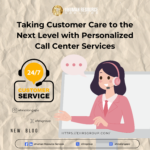What Is Call Center Turnover?
Call center turnover occurs when an employee leaves—whether voluntarily or involuntarily—and is replaced by a new hire. This turnover is not just inconvenient, as it necessitates hiring and training replacements, but also costly and detrimental to business outcomes.
Replacing an employee is often more expensive than retaining them. The costs include time and resources spent on recruiting, hiring, onboarding, and training new staff. Additionally, the departure of experienced employees can negatively impact key performance indicators (KPIs) and service levels. New employees typically take about eight months to reach full productivity, further impacting business efficiency.
Addressing call center turnover can lead to reduced operational costs and improved service levels by focusing on retaining experienced agents. So, where should you focus your efforts?
How to Avoid Call Center Turnover: 8 Effective Strategies
With various factors influencing call center turnover, it can be challenging to know where to start. Here are eight effective strategies to improve employee retention and reduce turnover:
1. Improve Recruitment and Hiring Processes
Ineffective recruitment and hiring can set the stage for turnover. Approximately 20% of employee turnover occurs within the first 45 days. This often results from hiring mismatches, poor onboarding, or weak management.
To address this, develop an ideal agent persona to guide hiring managers in selecting candidates with the right traits, skills, and values. Modern hiring software can also help assess candidate fit for specific roles or teams.
2. Provide Comprehensive Training and Development
Effective training and development extend beyond initial onboarding. Many call centers make the mistake of focusing training only during onboarding, leaving agents without further growth opportunities.
Ongoing training enhances career satisfaction and service quality. Consider that 62% of call center agents feel they need more skills-based training. Implement continuous training to help agents grow their careers and improve their performance.
3. Create a Positive and Supportive Work Environment
A positive work environment can significantly impact turnover. Evaluate team structure, management, and overall work culture. Poor management is cited by 34% of agents as a reason for leaving.
Assess factors such as high turnover rates in specific roles or teams, and consider anonymous employee satisfaction surveys to gather insights. Invest in work-life balance and support structures to enhance the work environment.
4. Offer Competitive Compensation and Benefits
Competitive compensation and benefits are crucial for retaining employees. The cost of replacing an employee can be up to 300% of their salary. Offering regular raises and comprehensive benefits is more cost-effective than frequent replacements.
Consider various benefits, such as vacation plans, performance bonuses, remote work options, and professional development budgets. Understand what motivates your agents and tailor benefits accordingly.
5. Regularly Monitor Employee Satisfaction and Retention Metrics
Just as you monitor customer metrics, regularly track employee metrics, including satisfaction, retention, and attrition rates. This helps identify negative trends early and address issues proactively.
6. Encourage Open Communication and Collaboration
Open communication between employees and management is vital for understanding and addressing turnover causes. Collect and act on feedback from employees to improve job satisfaction and reduce turnover.
Ensure that feedback is acknowledged and acted upon to maintain trust and engagement among employees.
7. Recognize and Reward Employee Achievements
Recognizing and rewarding achievements is essential for employee satisfaction. Regular public recognition, bonuses, and rewards tied to performance metrics can boost morale and engagement.
Ensure rewards are connected to controllable KPIs to motivate employees effectively.
8. Offer Growth and Advancement Opportunities
Providing clear career paths and growth opportunities can reduce turnover. Many agents leave due to a perceived lack of career progression.
Develop programs for cross-training, career development, and advancement. Provide actionable feedback and support employees in pursuing their career goals.
Avoiding Call Center Turnover Through Outsourcing
If turnover remains a challenge, outsourcing can be an effective solution. Outsourcing provides access to experienced agents and allows you to delegate team management, hiring, training, and retention to a specialized provider. This approach can help reduce internal workload and improve overall employee satisfaction.
Outsourcing can also offer flexible staffing, reduce costs, and improve support during peak periods. Consider partnering with a provider like ROI CX Solutions to address turnover and retention challenges effectively.
Interested in how outsourcing can support your call center? Connect with an expert from ROI CX Solutions to explore tailored solutions for your turnover and retention needs.


